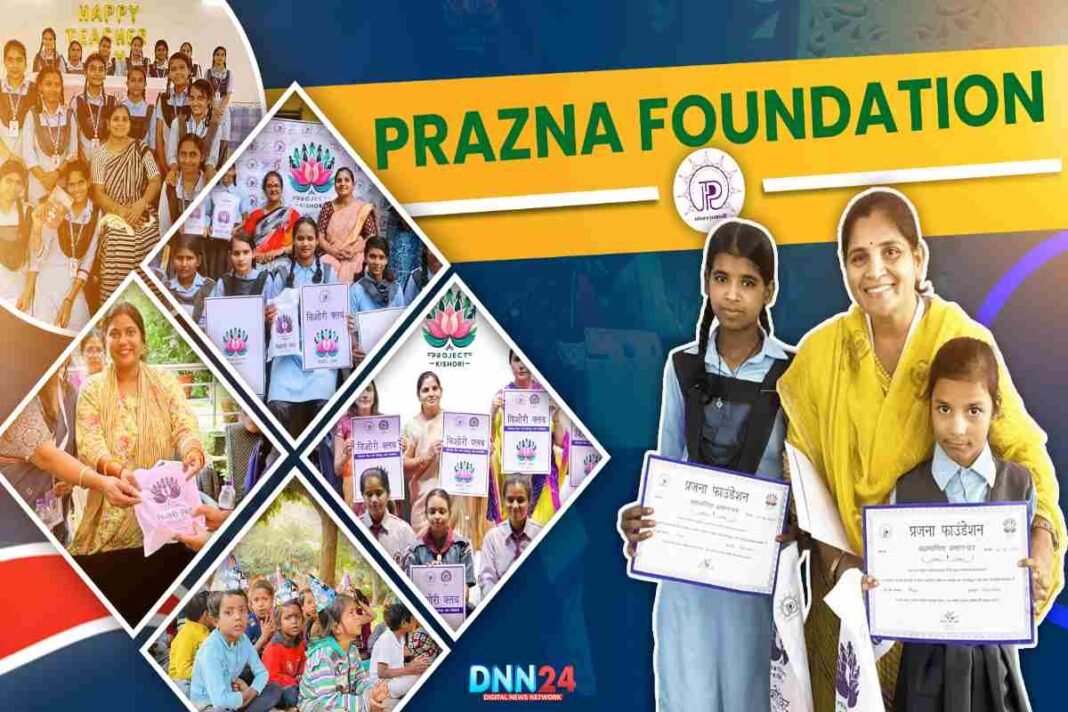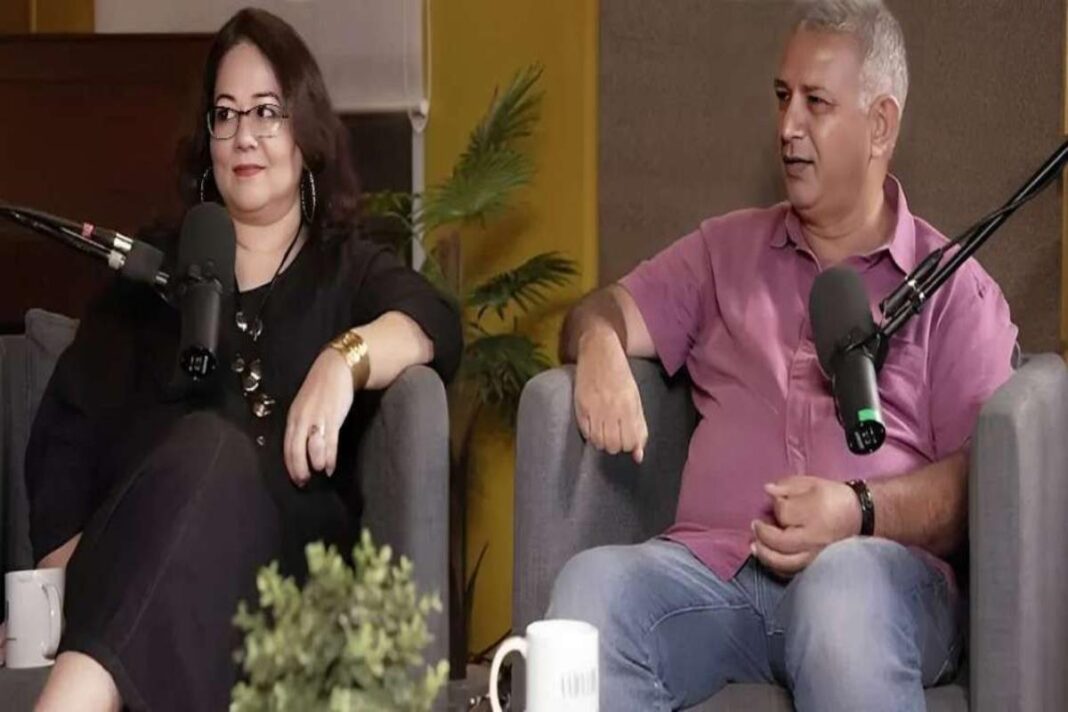Prazna Foundation emerged as a profound embodiment of wisdom, drawing deep inspiration from the celestial grace of Goddess Saraswati, the revered Hindu deity of knowledge, creativity, and learning. In the rich tapestry of Hindu mythology, Saraswati stands alongside Lord Brahma as a guiding force of creation, symbolizing not just education, but the intricate dance of intellect and artistic expression. The very name “Prazna” resonates with the Sanskrit essence of wisdom, reflecting a profound philosophical understanding of human potential and inner transformation. At its core, the foundation seeks to address a critical human challenge: the tendency to lose oneself in the constant pursuit of external validation and societal expectations. Prazna recognizes that individuals often compromise their internal peace and creative spirit while attempting to satisfy others’ demands. The organization stands as a beacon of hope, reminding people of their inherent right to happiness, health, and personal growth. Through its holistic approach, Prazna aims to create opportunities that enable individuals to rediscover their devotion, understanding, and innate creativity.
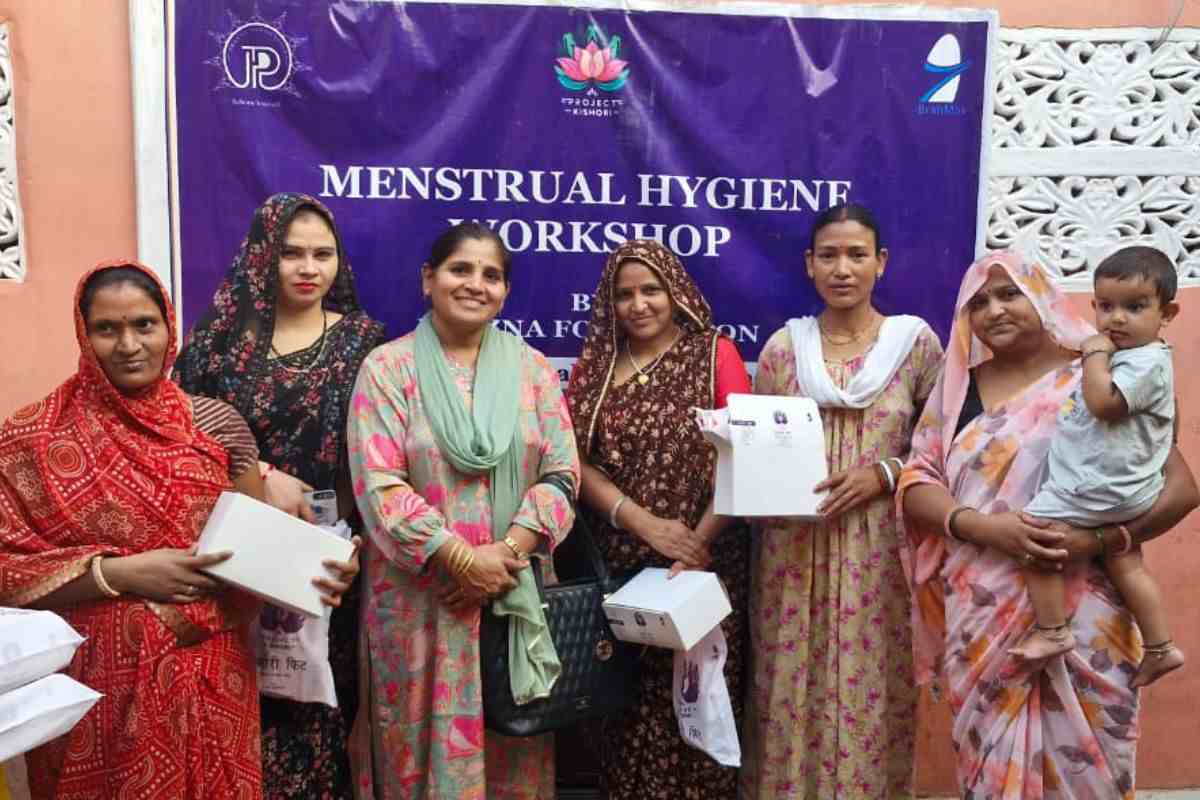
The foundation’s mission extends beyond mere skill development. It strives to provide a comprehensive platform that supports individuals in pursuing their unique interests and passions. By designing targeted programs, Prazna works to enhance personal capabilities, empowering participants to achieve their goals with confidence and purpose. The organization’s commitment manifests through diverse initiatives, including art and craft workshops that inspire creativity, stimulate imagination, and encourage deep reflection across various age groups.
The Founding Vision and Inspirational Journey
The establishment of Prazna represents a collective dream of visionaries who deeply understood the transformative power of human potential. These founders came together with a shared conviction that true empowerment transcends traditional educational models. They recognized the need for a platform that could support holistic personal development, addressing the often-overlooked aspects of individual growth and self-discovery. The founding team brought together diverse experiences from social work, education, art, and community development. Each member carried personal narratives of struggle and resilience, understanding intimately the challenges of maintaining one’s inner peace in a demanding world. Their collective vision was to create an organization that could serve as a catalyst for personal and social transformation, providing support that goes beyond conventional boundaries.
Prazna’s commitment to social impact is particularly evident in its dedicated programs for women’s welfare. The foundation provides a robust platform for volunteering, focusing on critical areas such as women’s sanitation, health, and education. Special emphasis is placed on menstrual health awareness and support, reflecting a deep understanding of the challenges faced by women in various communities. Through these initiatives, Prazna aims to create meaningful change, empowering individuals to become agents of positive transformation in their personal and professional lives.
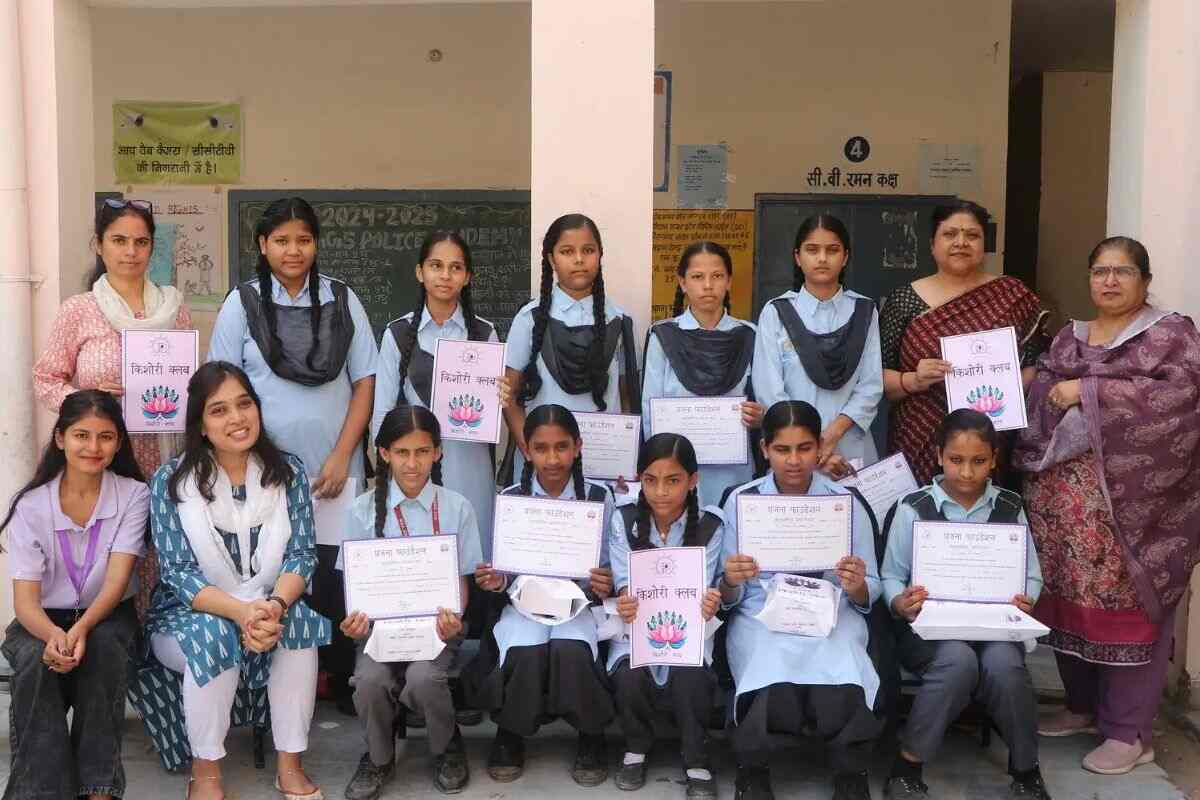
Prazna Foundation’s Project Kishori: A Beacon of Menstrual Health and Dignity
Project Kishori stands as a testament to the foundation’s commitment to addressing critical social issues. Launched with profound sensitivity, this project emerged from a stark realization about the lack of menstrual health awareness among young girls and women. In 2019, the foundation began its journey to break taboos and provide crucial education about menstrual hygiene, reproductive health, and personal well-being. The project’s most significant milestone came in August, marked by a launch event graced by the Deputy Chief Minister of Rajasthan. By creating comprehensive awareness programs, the foundation has touched over 100 government schools, distributing specially crafted hygiene kits that include essential items like sanitary pads, soap, and disposal bags. More importantly, they provide critical education about menstrual health, challenging deep-rooted misconceptions and empowering young girls with knowledge about their bodies.
Transforming Education Through Akshar Kaksha
Education is the foundation’s primary weapon against social inequality. The Akshar Kaksha program embodies their holistic approach to learning, having already impacted approximately 300 children. Their unique method goes beyond traditional teaching – they motivate children to attend government schools, ensuring they can access the educational resources and opportunities provided by the state. But education here is more than academic learning. The program instills essential life values – teaching children about personal hygiene, honesty, discipline, and self-respect. Parents are equally engaged, encouraged to support their children’s education and learn from them. The foundation creates a supportive ecosystem where learning becomes a collaborative and transformative experience.
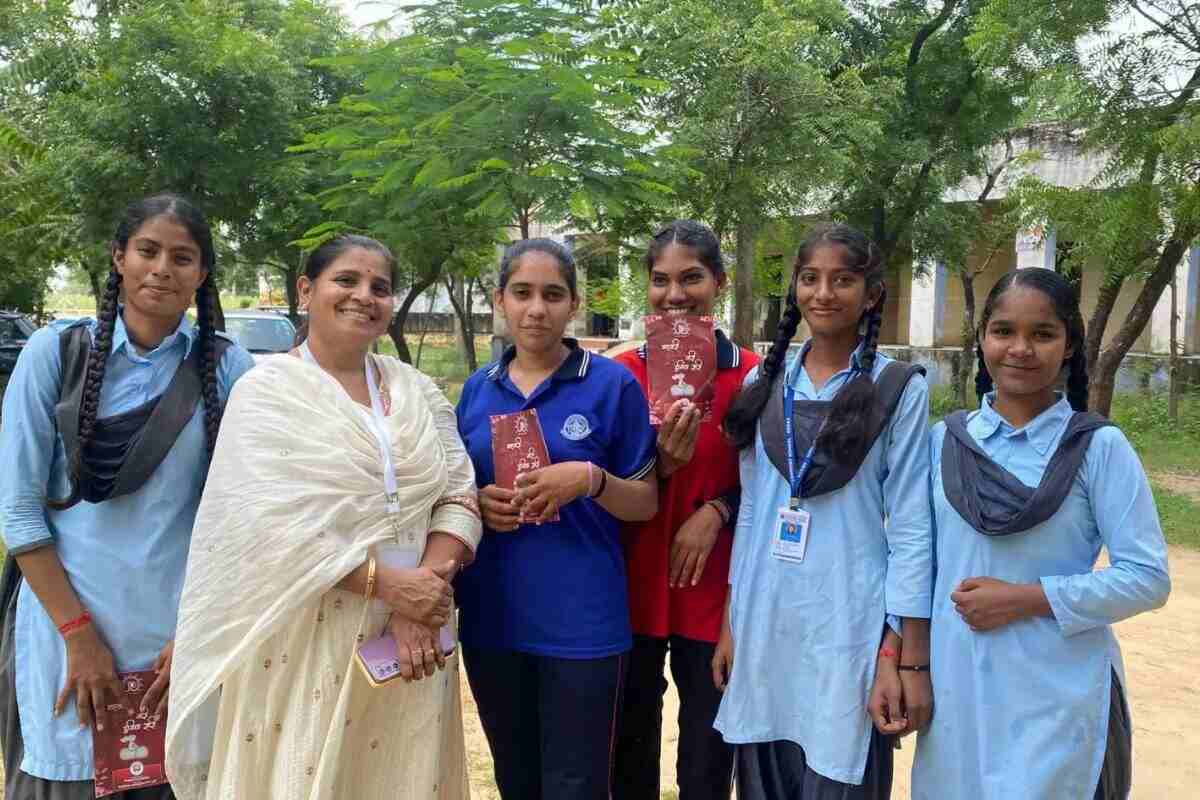
Comprehensive Support for Women and Girls
The foundation’s work extends far beyond classroom walls. Recognizing the multifaceted challenges faced by women and girls, they provide holistic support addressing educational, health, and social barriers. Through Project Kishori, they’ve developed an innovative approach that combines education, health awareness, and practical support. Their interventions are deeply empathetic – understanding that economic constraints often prevent girls from accessing basic necessities. The hygiene kits are not just about providing materials, but about restoring dignity and creating opportunities. By addressing menstrual health, hygiene, and education simultaneously, they’re breaking cycles of ignorance and empowerment.
Financial Commitment to Social Change
While the exact annual expenditure isn’t explicitly detailed in the source, the foundation’s commitment is clear. They’ve invested significant resources in conducting workshops, distributing hygiene kits, and running educational programs across multiple schools. Their approach is strategic – maximizing impact by working intensively, such as conducting workshops in ten schools in a single day. The foundation operates with a philosophy of sustainable change – understanding that true transformation requires consistent, compassionate intervention. Every rupee spent is an investment in human potential, in breaking cycles of poverty and ignorance, and in creating a more equitable future for women and girls. Their work is a powerful reminder that social change begins with understanding, education, and unwavering commitment to human dignity.

Empowering Young Girls Through Education and Awareness
In the heart of India’s social landscape, a remarkable journey of transformation is unfolding, centered around breaking the silence surrounding menstrual health and women’s well-being. The approach is deeply personal and profoundly systemic, targeting the root of societal discomfort and ignorance. By conducting workshops in ten schools in a single day, the initiative demonstrates an extraordinary commitment to reaching young minds at the most critical stage of their development. The core philosophy is simple yet powerful: every girl, regardless of her age or stage of life, deserves comprehensive, compassionate information about her body. From adolescent girls experiencing their first menstrual cycle to women approaching menopause, the knowledge is a fundamental right, as essential as a flickering light in the darkness of uncertainty. The team recognizes that the investment of time and resources, however modest, is invaluable in creating lasting change.
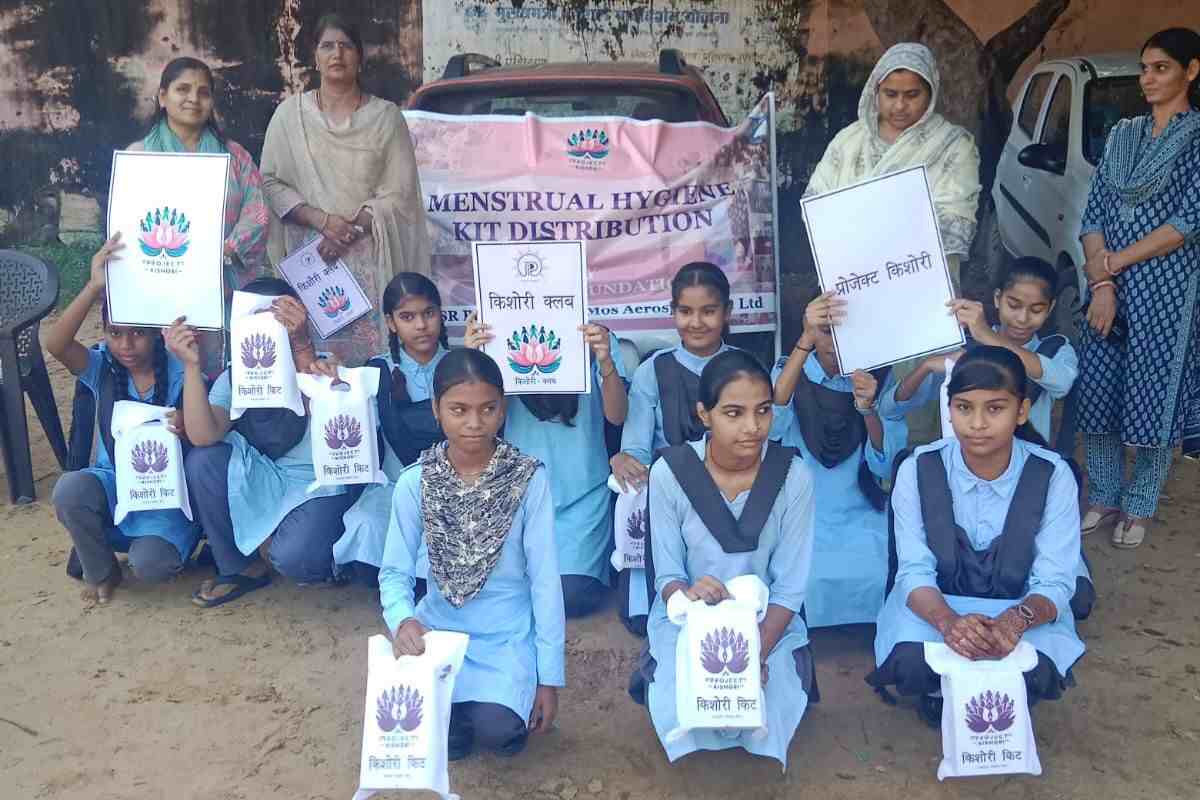
Creating Sustainable Community Engagement
The innovative approach of establishing ‘Kishori Clubs’ (Adolescent Girls’ Clubs) within schools represents a groundbreaking strategy for continuous engagement. By selecting proactive girls from within the school environment, the initiative creates a peer-led model of education and support. These club members become ambassadors of change, facilitating monthly activities that range from yoga sessions to addressing menstrual health challenges. This method addresses multiple challenges simultaneously. It creates a safe space for girls to discuss sensitive topics, reduces the stigma associated with menstruation, and builds a support network that extends beyond a single workshop. The clubs ensure that girls have a continuous line of communication with supportive adults and peers, making them feel less isolated and more empowered.
Challenging Systemic Infrastructural Neglect
The narrative powerfully exposes the systemic neglect of women’s basic needs in public spaces. Using a poignant example of an international stadium, the account highlights the deplorable state of washroom facilities and hygiene standards. This is not just about menstrual health but a broader commentary on societal respect and dignity for women. The founder’s vision extends beyond immediate interventions. She sees sanitation and cleanliness as a form of social exchange, a fundamental responsibility that communities owe to each other. By consistently raising these issues and creating awareness, the initiative aims to transform public spaces into more inclusive, respectful environments.
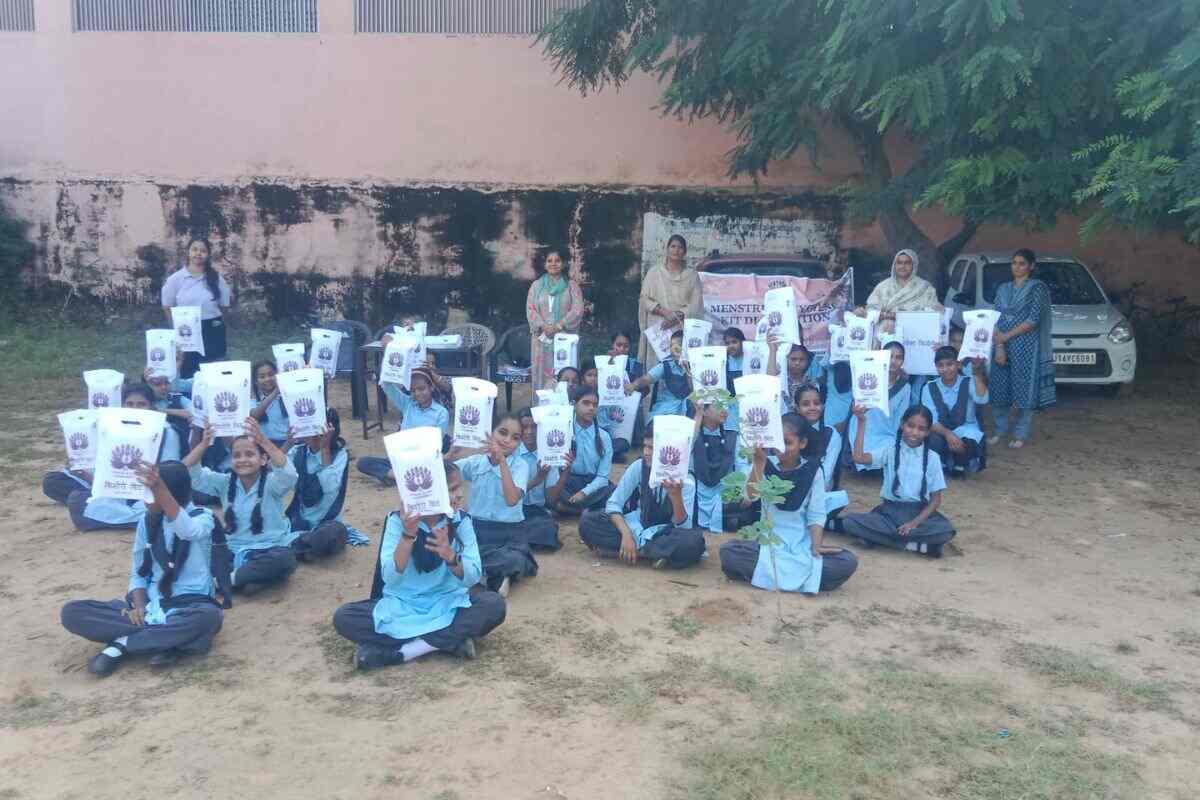
Collaborative Problem-Solving and Advocacy
The approach to addressing systemic issues is collaborative and strategic. By partnering with professionals like lawyers and educators, the foundation creates multi-pronged strategies for change. The example of conducting workshops in courts to highlight infrastructure challenges demonstrates an innovative approach to advocacy. The belief is that collective action can drive significant change. If a group of committed women and allies come together, persistent issues can be resolved. The goal is not just to complain but to create actionable solutions that improve the quality of life for women and girls across various societal spaces.
Holistic Menstrual Hygiene Support
Beyond workshops and awareness, the initiative provides practical support through comprehensive menstrual hygiene kits. These kits are carefully curated to include essential items like personal care products, ensuring that girls have access to basic necessities. The approach is about more than just providing materials; it’s about dignity, comfort, and education. The foundation’s work represents a holistic model of social transformation, addressing menstrual health not as an isolated issue but as an integral part of women’s overall well-being and societal progress.
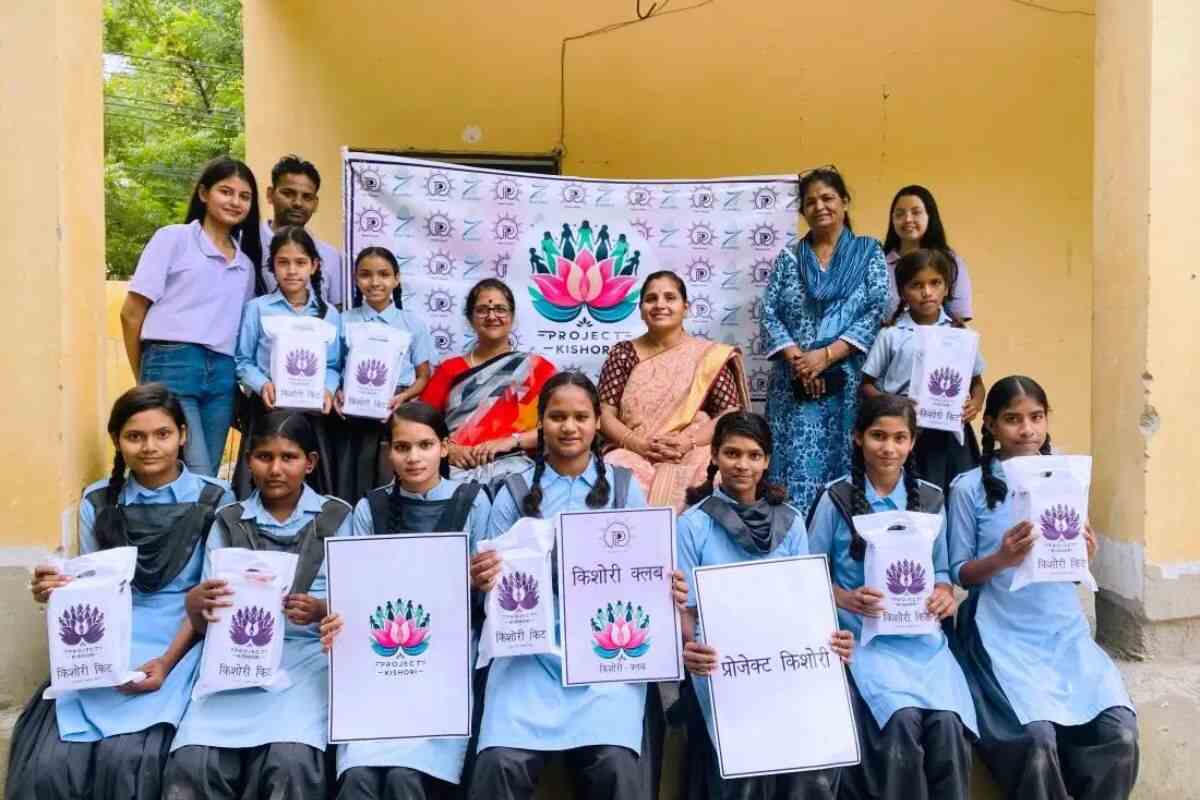
Collaboration with Schools and Communities
The Prazna Foundation has fostered meaningful collaborations with schools and local communities to create awareness and drive positive social change. Their initiatives include partnerships with universities such as Manipal University, where a Kishori Club was established. This club conducts workshops in nearby areas, targeting adolescent girls to educate them about health, hygiene, and education. Collaborations extend to institutions like Khandelwal Girls’ College and news channels to amplify their outreach. In schools, the Foundation addresses logistical and infrastructural issues that prevent effective learning, such as lack of space and unfriendly environments. They emphasize motivating students and creating interactive sessions, especially for topics considered sensitive. Interestingly, girls from rural schools have shown greater curiosity and engagement compared to urban schools, demonstrating the untapped potential in underserved areas.
Workshops also include male students and volunteers to foster inclusive participation. These efforts break down taboos and encourage boys to play a supportive role. While urban areas show fewer challenges in participation, rural areas sometimes struggle with stigma. For instance, girls hesitate to carry menstrual kits home due to societal pressures. By addressing such challenges, the Foundation aims to normalize conversations about health and hygiene, hoping to see substantial behavioral shifts in the near future.

Role of Prazna Foundation in Women’s Empowerment
The Prazna Foundation actively champions women’s empowerment by educating them on topics often overlooked, such as menopause and menstrual health. Many women, even those aged over 40, are unaware of how to manage health changes associated with menopause. Through workshops, the Foundation provides detailed information about dietary adjustments, mental health management, and overall wellness to help women transition smoothly through different life stages.
Beyond health education, the Foundation works to create a support system by identifying community leaders—women who are willing to take the initiative. These leaders are trained to organize and lead similar workshops, ensuring that the knowledge is disseminated across broader networks. By doing so, the Foundation empowers women to not only improve their own lives but also to become advocates for change within their communities. Additionally, the Foundation addresses critical issues like education and financial independence. They encourage women to pursue vocational training and provide them with tools to gain economic stability. Through these initiatives, women are not only educated but also motivated to educate others, creating a ripple effect that transforms entire communities.
Number of Girls and Women Helped
Since its inception, the Prazna Foundation has made a significant impact, reaching approximately 15,000 to 16,000 girls and women. Their efforts span urban and rural areas, with a recent focus on underserved regions. Over the past few months, they have expanded their reach to remote villages, where they have already connected with thousands of women.
The Foundation’s approach includes conducting awareness workshops and distributing health kits to girls and women. These initiatives are supported by proactive outreach efforts, with people from various districts, such as Udaipur and Dungarpur, contacting the Foundation to request workshops in their areas. This level of engagement highlights the increasing demand for the Foundation’s programs and the trust they have built within communities. By creating partnerships with local leaders and organizations, the Foundation ensures that their efforts are sustainable. Women and girls not only receive immediate help but are also encouraged to spread awareness and support others in their communities. This multiplier effect amplifies the Foundation’s impact, ensuring that their work benefits an ever-growing number of individuals.
Future Expansion Plans and Enhancing Project Kishori’s Impact
Looking ahead, the Prazna Foundation aims to expand its initiatives to reach even more women and girls. One of their key goals is to make menstrual health and hygiene a priority, especially in areas where such topics are not openly discussed. The Foundation plans to introduce a system where monthly health kits are distributed and refilled periodically. This approach ensures consistent access to essential resources, encouraging long-term behavioral change. Another aspect of their expansion includes identifying and empowering local women who can take on leadership roles. By training these women, the Foundation creates a network of advocates who can extend their reach to new areas. This decentralized approach ensures that the knowledge and resources provided by the Foundation are sustained and amplified over time.
In schools, they aim to further reduce dropout rates by addressing the root causes, such as lack of awareness and poor sanitation facilities. By working closely with communities, the Foundation ensures that schools become safe and supportive environments for girls. Additionally, they plan to introduce educational programs that combine academic learning with life skills, empowering girls to overcome societal barriers. Through these efforts, the Prazna Foundation envisions a future where awareness, education, and empowerment are accessible to all women and girls, transforming the societal narrative and ensuring a better quality of life for generations to come.
Also Read: Building Hope: The Story of Semchan Welfare Society in Leh
You can connect with DNN24 on Facebook, Twitter, and Instagram and subscribe to our YouTube channel.

